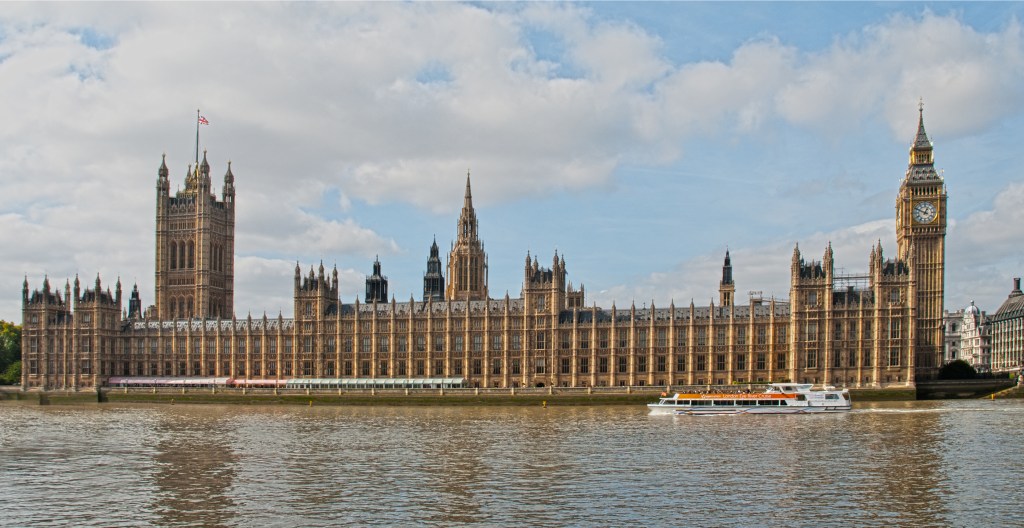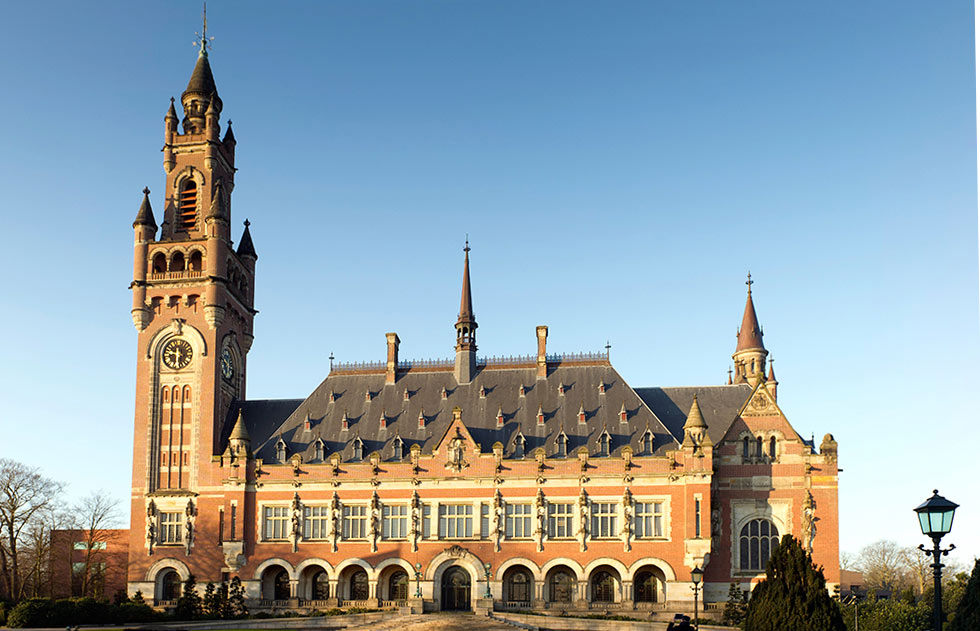In R (Campbell) v HM Attorney General [2025] EWHC 1653 (Admin), the Divisional Court (Lord Justice Stuart-Smith and Mr Justice Chamberlain) determined that a refusal by the Attorney General to issue a fiat for an application for a new inquest under section 13 (1) (b) of the Coroners Act 1988 is non-justiciable.
Background
Geoffrey Campbell died in the 9/11 terrorist attacks on the World Trade Centre. In the inquest into his death in 2013, the Senior Coroner for West London concluded that he had been unlawfully killed when a plane was deliberately flown into the building as “part of a coordinated attack by the Islamist militant group Al-Qaeda”.
Mr Campell’s brother, the Claimant, believes, rather, that the tower collapsed as a result of pre-planted explosives and incendiary devices detonating. He relied on fresh evidence not available to the Senior Coroner in an application to the Attorney General to exercise his power under section 13 (1) (b) of the Coroners Act 1988 (‘the 1988 Act’) to issue a fiat to apply to the High Court for an order quashing the original inquest and directing that a fresh investigation be held.
The Attorney General deemed the Claimant’s belief to be “fanciful” and “simply not credible” and twice declined to issue a fiat. The Claimant sought a judicial review of the decision on a several grounds. The Attorney General contended that the decision was not challengeable or, alternatively, could only be challenged on exceptional grounds, such as fraud, corruption or bad faith. Mr Justice Chamberlain ordered that the justiciability of the decision be tried as a preliminary issue.
The Attorney General’s Role: Legal Framework
Section 13 of the 1988 Act provides:
1. This section applies where, on an application by or under the authority of the Attorney-General, the High Court is satisfied as respects a coroner (“the coroner concerned”) …
(b) where an inquest or an investigation has been held by him, that (whether by reason of fraud, rejection of evidence, irregularity of proceedings, insufficiency of inquiry, the discovery of new facts or evidence or otherwise) it is necessary or desirable in the interests of justice that an investigation (or as the case may by, another investigation) should be held.
(2) The High Court may –
(a) order an investigation under Part 1 of the Coroners and Justice Act 2009 to be held into the death either –
(i) by the coroner concerned; or
(ii) by a senior coroner, area coroner or assistant coroner in the same coroner area; …
and
(c) where an inquest has been held, quash any inquisition on, or determination or finding made at that inquest…”
The Court considered section 13 of the 1988 Act in the historical context of the Attorney General’s constitutional role and public interest functions, which derive from the Royal prerogative and are also conferred by statute, a relate to both criminal and civil law e.g. the power to enter a nolle prosequi in a criminal trial and applying to the Court for an order to restrain vexatious litigants from bringing proceedings: [13]. In the Court’s view, the power under section 13 (1) of the 1988 Act “naturally” fell within the category of the Attorney General’s public interest functions in civil law: [15].
The Attorney General relied on Gouriet v Union of Post Office Workers [1978] AC 435 to argue that his decision not to issue a fiat was “absolute [] and non-reviewable”. In Gouriet, the Attorney General had refused Mr Gouriet’s request for his consent to bring realtor proceedings against the Union of Post Office Workers, which had decided to boycott post to and from South Africa. Mr Gouriet sought an injunction in his own name against the union to restrain a threatened breach of the criminal law, as well as a declaration that the Attorney General had acted improperly by refusing his consent. The majority in the Court of Appeal ([1977] QB 729) held that the refusal was not reviewable, as “the courts have no jurisdiction over the discretion of the Attorney-General as to when, and when not, he should seek to enforce the law having public consequences” (as per Lawton LJ, at p.768C). The House of Lords agreed. Lord Wilberforce observed, at 481A:
“That it is the exclusive right of the Attorney-General to represent the public interest – even where individuals might be interested in a larger view of the matter – is not technical, not procedural, not fictional. It is constitutional…it is also wise.”
Lord Fraser agreed, at 524C, and considered the justification for the non-reviewability to be that:
“If the Attorney-General were to commit a serious error of judgment by withholding consent to relator proceedings in a case where he ought to have given it, the remedy must in my opinion lie in the political field by enforcing his responsibility to Parliament and not in the legal field through the courts. That is appropriate because his error would not be an error of law but would be one of political judgment, using the expression of course not in a party sense but in the sense of weighing the relative importance of different aspects of the public interest. Such matters are not appropriate for decision in the courts.”
The implications of Gouriet for section 13 (1) of the 1988 Act was examined in R v Attorney General ex p. Ferrante (unreported, 1 July 1994), an earlier attempt to challenge a refusal of a fiat to apply for a new inquest by the Attorney General. Popplewell J rejected the argument that Gouriet was distinguishable and confined to the use of civil proceedings to enforce the criminal law. He held that it was of general application, that the Attorney General was acting as a guardian of the public interest in deciding applications under section 13 (1) of the 1988 Act and the justiciability of the exercise of a power of the Attorney General depended on the character of that power, rather than its source.
Nicol J, however, was sceptical of the non-justiciability argument in the application for permission for judicial review of the Attorney General’s refusal to issue a fiat for a fresh inquest into the death of Dr David Kelly in R (Halpin) v Attorney General [2011] EWHC 3759 (Admin). Refusing permission on other grounds, Nicol J stated, at [22] of the judgment:
“If, hypothetically, there were substantial grounds for considering that the Attorney had acted unlawfully in refusing his consent, it would be an unattractive position, to put it neutrally, if that illegality was beyond the power of the courts to judicially review. I was grateful therefore for [counsel for the Attorney General] turning to the merits of the case.”
Arguments before the Court
The Claimant invited the Court to distinguish Gouriet from the present case on the basis that section 13 (1) (b) of the 1988 Act was not concerned with realtor actions, asserts a private rather than a public law right and is derived from statute rather than the prerogative. Further, the Claimant submitted that justiciability could not be treated in isolation, apart from the question of the merits of the challenge.
The Attorney General relied on Gouriet to argue that decisions made by him in the exercise of his public functions are non-justiciable and argued that the reason for this was that such decisions involve the balance of competing political considerations for which the Attorney General is accountable to Parliament, such that the court should not readily interfere. In the alternative, he submitted that any interference by the court was limited to the grounds of fraud, bad faith, or other exceptional circumstances.
Judgment
The Divisional Court held that “there is a category of functions of the Attorney General that are immune from review on any ground”, [54], of which the power to authorise an application to the High Court for a new inquest is one.
Where the Attorney General has an exclusive power to enforce the law by bringing criminal or civil proceedings in the public interest and powers to authorise or terminate such proceedings by others, he is “a gatekeeper to the court and therefore…part of the administration of justice” [55]. In that respect, the power to issue a fiat under section 13 resembles the Attorney General’s power to provide his consent to proceedings for contempt of court[1], which the Court held was non-justiciable in R v Solicitor General ex p. Taylor (1996) 8 Admin LR 206. Both section 13 of the 1988 Act and the contempt of court statute were enacted post-Gouriet and Parliament could be assumed to know the law as stated therein.
Parliament’s decision to confer the power in section 13 of the 1988 Act exclusively on the Attorney General differed from, for example, his power to issue a certificate under section 53 of the Freedom of Information Act 2002 to override the decision of a tribunal to order disclosure of information, which was conferred on a range of other officer holders. Contrast between overriding the decisions of tribunals on one hand and regulating access to them:
56. The function conferred by s. 13(1) of the 1988 Act seems to us indistinguishable from that considered in ex p. Taylor. Both are conferred specifically and only on the Attorney General. Both are gatekeeping functions. In both cases, Parliament decided that a particular form of proceedings (in ex p. Taylor proceedings for contempt of court; in the present case, proceedings for a new inquest) should be available only with the consent of the Attorney General. In both cases, the evident reason was that the public interest might be damaged if the proceedings in question could be brought by private individuals without any filter. In the present case, the filter promotes the public interest in legal certainty. Thus, whatever might be said about the precise boundary of the non-justiciable category, the function of consenting to proceedings under s. 13(1) of the 1988 Act seems to us to fall squarely within it.
The Court also accepted the Attorney General’s alternative submission that, if they were wrong, the only grounds on which a refusal by the Attorney General to issue a fiat pursuant to section 13 was justiciable was limited to “dishonesty or mala fides or an exceptional circumstance”, [57], none of which were applicable to the present case.
Comment
Unlike a claim for judicial review, there is no time limit to apply for a fiat under section 13. It is often the only gate that a party can try to pass through to challenge the sufficiency of an inquest or a coroner’s decision not to hold an inquest at all.
However, the process of applying for a fiat from the Attorney General is not formalised and there is no clear guidance on how he determines the decision, nor is there any means of appealing a refusal. Nonetheless, the Divisional Court has confirmed that, possibly absent grounds for alleging dishonesty, bad faith or exceptional circumstances, the Attorney General’s determination is final and not open to challenge. Whilst the Court acknowledged that the conclusion may appear “anomalous…in the light of the rest of the modern law of judicial review”, it considered itself bound by long-established precedent.
In one respect, given its review of that case law, the Court’s conclusion was unsurprising. However, the analogy drawn with R v Director of Public Prosecutions ex p. Kebilene [2000] 2 AC 326 (which determined that a decision by the Director of Public Prosecutions to consent to a prosecution was not amenable to judicial review, absent dishonesty, bad faith or an exceptional circumstance[2]) warrants some examination. Whilst the Court was satisfied none of the grounds alleged anything that could be described as an exceptional circumstance, [57], it did not offer any guidance on what may be considered may constitute ‘exceptional’ in this context.
Nor did the Court comment on the distinction drawn by Lord Steyn, at p369E-F, between a decision to prosecute and a decision not to prosecute, whereby “judicial review is available” for the latter, on the basis that it is “a wholly different situation because in such a case there is no other remedy”. Arguably, the same could be said of a refusal by the Attorney General for a fiat to seek a fresh inquest. The circumstances in which the courts have held that a decision by the Director of Public Prosecutions not to prosecute can be challenged include a misunderstanding or misapplication of the law[3], where evidence supporting a prosecution has not been considered properly[4], and where there has been a failure to comply with relevant CPS policy[5], and a failure to take account of a previous judicial decision, as in R v DPP, ex parte Manning & Another [2001] Q.B. 330, in which the Court held that the Director should provide reasons for a decision not to prosecute following a conclusion of unlawful killing in an inquest touching on a death in custody.
Whilst it may “not now open to any court below the Supreme Court to decide otherwise”, [54], another claim in the future with some basis to allege exceptional circumstances may give the Supreme Court the opportunity to do just that.
Paula Kelly is a barrister at 1 Crown Office Row
[1] Section 7 of the Contempt of Court Act 1971
[2] See Lord Steyn at p. 371F.
[3] R v DPP, ex p. Jones (Timothy) [2000] Crim LR 858
[4] Torpey v DPP [2019] EWHC 1804 (Admin)
[5] R v Director of Public Prosecutions [1995] 1 Cr.App.R.136
The post Attorney General’s refusal of a fiat to seek a fresh inquest is non-justiciable appeared first on UK Human Rights Blog.




